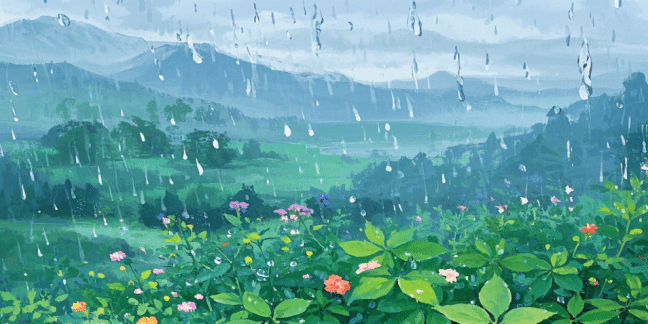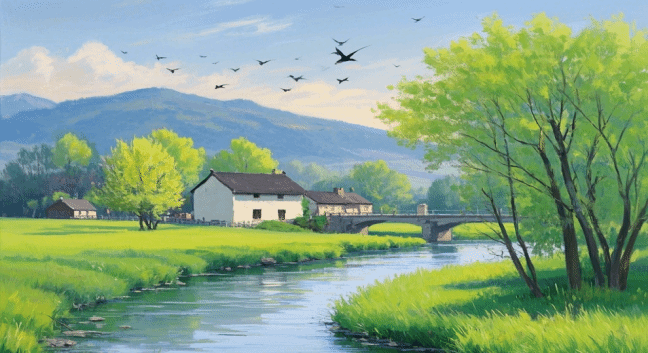Spring in Verse: Translating the Beauty of Chinese Poetry into English
诗意春韵:春天诗句的英文翻译之美
As the gentle breeze of spring awakens the earth, poets throughout history have captured its fleeting beauty in delicate verses. From the blossoming flowers to the returning swallows, classical Chinese poetry paints a vivid picture of the season’s charm. But how do these timeless lines resonate when translated into English? Today, we explore the art of rendering spring’s poetic essence across languages.
The Elegance of Spring in Classical Poetry
Chinese poets like Du Fu, Li Bai, and Wang Wei have immortalized spring in their works, blending natural imagery with profound emotion. Take, for instance, Du Fu’s famous line:
"好雨知时节,当春乃发生。"
"The good rain knows its season, / When spring arrives, it brings life."

The translation preserves the simplicity and rhythm, yet the original’s personification of rain ("knows its season") carries a cultural nuance—reflecting the harmony between nature and human life in Confucian thought.
Challenges in Translation
Translating classical poetry involves more than converting words—it requires capturing the yi jing (意境), or "artistic conception." For example, a line from Bai Juyi’s Remembering the South:
"日出江花红胜火,春来江水绿如蓝。"
"At sunrise, river blooms outshine the fire; / In spring, the waters turn as blue as indigo."

Here, the translator balances vivid imagery ("red胜过火"—"outshine the fire") while adapting the color metaphor ("green as indigo") for clarity. The challenge lies in retaining the lyrical flow without losing cultural specificity.
Modern Interpretations
Contemporary translators often take creative liberties to evoke similar emotions. A rendition of Meng Haoran’s Spring Dawn reads:
"春眠不觉晓,处处闻啼鸟。"
"Spring slumber unaware of morning’s light, / Till everywhere I hear birds’ lively flight."

The rhyming couplet mimics the original’s musicality, though some argue it softens the abruptness of the Chinese ("不觉晓"—"unaware of dawn").
Why It Matters
In a globalized world, translating spring poetry bridges cultures. As American poet Robert Frost once said, "Poetry is what gets lost in translation," yet these efforts allow English readers to glimpse the East’s reverence for nature’s cycles. Whether through scholarly precision or artistic adaptation, each version plants a seed of appreciation.
As we welcome another spring, let these translated verses remind us that beauty, like the season itself, knows no borders.
Further Reading: The Selected Poems of Du Fu (trans. Stephen Owen), Nineteen Ways of Looking at Wang Wei (Eliot Weinberger).
This article is part of our "Culture in Translation" series. Share your favorite spring poem translations with us .
外语部
林睿睿